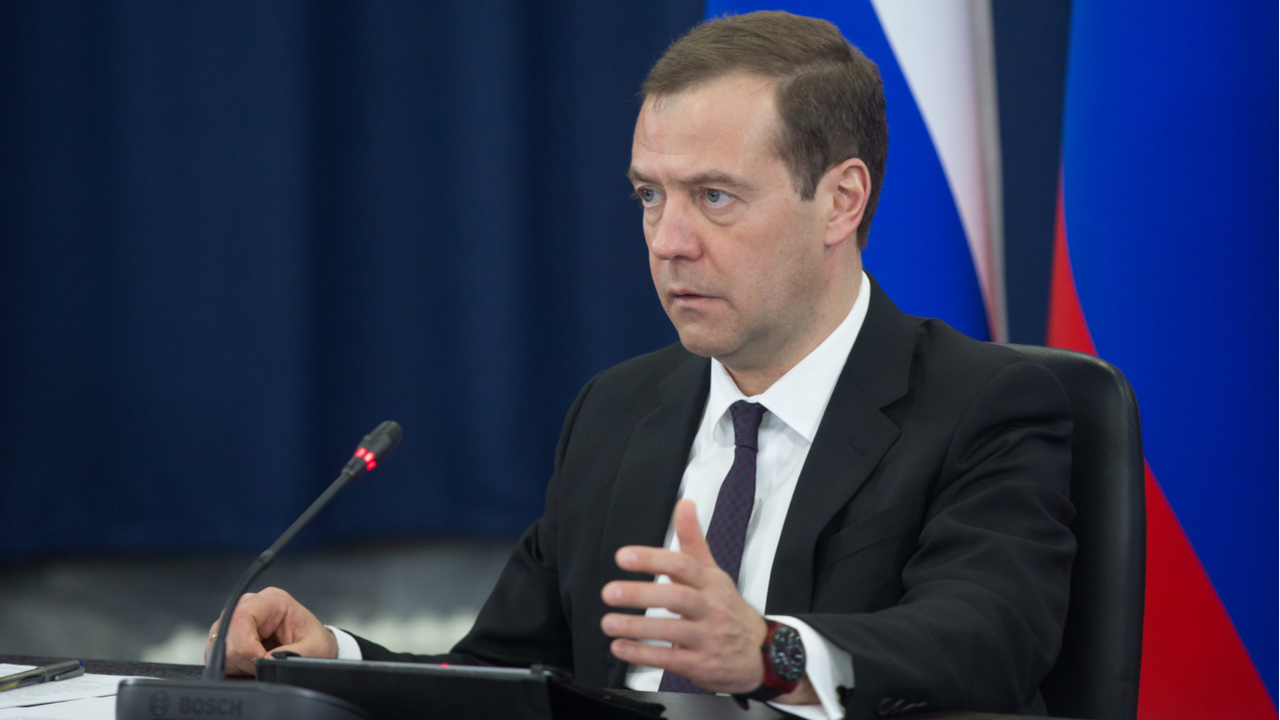Russia May ‘Nationalize’ Foreign Assets in Response to Western Sanctions, Medvedev Says
Publikováno: 27.2.2022
 Authorities in Russia may begin to seize funds of foreign nationals and companies that are in the country, former Russian President Dmitry Medvedev has indicated. His warning comes as the West continues to expend penalties imposed on Moscow over its military invasion of neighboring Ukraine. Medvedev Warns Persons and Entities From ‘Hostile’ Nations May Lose […]
Authorities in Russia may begin to seize funds of foreign nationals and companies that are in the country, former Russian President Dmitry Medvedev has indicated. His warning comes as the West continues to expend penalties imposed on Moscow over its military invasion of neighboring Ukraine. Medvedev Warns Persons and Entities From ‘Hostile’ Nations May Lose […]

Authorities in Russia may begin to seize funds of foreign nationals and companies that are in the country, former Russian President Dmitry Medvedev has indicated. His warning comes as the West continues to expend penalties imposed on Moscow over its military invasion of neighboring Ukraine.
Medvedev Warns Persons and Entities From ‘Hostile’ Nations May Lose Their Assets in Russia
The nationalization of Russian-based assets belonging to foreigners and businesses registered in “hostile jurisdictions” is a possible response to the potential seizure of funds of Russian citizens and companies abroad. That’s according to a recent statement by the Deputy Chair of the Security Council of Russia Dmitry Medvedev on social media.
Following President Putin’s decision to launch a military operation in Ukraine, the United States and European allies introduced a wide range of sanctions on Russia, Russian banks, its political and business elites. On Saturday, Medvedev took to Facebook to comment on the measures that are targeting the members of the council as well.
“Naturally, these wonderful bans won’t change anything… As a reference: my family members and I had no – and have no – either bank accounts or property abroad,” said the high-ranking official who was Russia’s head of state between 2008 and 2012.
Dmitry Medvedev remarked that western leaders are threatening to block the accounts of Russian citizens and companies that are not on the sanctions list and emphasized that Moscow’s response should be symmetrical. He suggested that Russia should freeze the financial funds of foreign citizens and companies or maybe even “nationalize the property of those registered in unfriendly jurisdictions.”
While Medvedev did not specify the different kinds of assets he meant, the lower house of parliament, the Duma, recently adopted a law allowing the Russian state to seek seizure of digital currencies through courts, along with property and traditional financial assets.
While this legislation is targeting corrupt government officials, in particular, the Russian authorities are also actively working to comprehensively regulate all transactions in the crypto space. Media reports have suggested that Russian elites and the country can use cryptocurrencies to evade western sanctions.
Do you expect Russia to start seizing financial funds, including digital assets, and property belonging to foreign nationals and companies? Tell us in the comments section below.